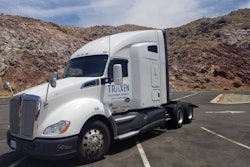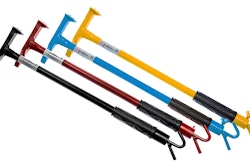Healthcare is typically the second or third largest budget item for most trucking companies, said Alex Dampf, president of Nashville-based health insurance brokerage Oakmont Benefits Group. And over the last 10-15 years, the cost of health insurance – including deductibles and other out-of-pocket costs for employees – has steadily climbed, he said.
Dave Chase, co-founder of the Health Rosetta blueprint for health benefits, said healthcare costs typically account for approximately 20% of all payroll expenses.
Those big annual expenses and climbing costs, especially in the midst of a pandemic, has fleets searching for alternatives to the traditional health insurance model.
Though employers and employees are conditioned to think about healthcare only in the terms of that traditional insurance model, Dampf says options like Health Rosetta can help motor carriers build insurance plans more specifically to their needs.
“The main thing with Health Rosetta is putting transparency back in healthcare,” Dampf said. “No one really knows what’s happening behind the scenes. The goal is to first bring that back to see exactly what’s going on. The goal is to make it simpler and provide the types of coverage they need by designing a plan to provide the highest level of value to the employee at a reasonable cost.”
Another alternate form of health insurance is the reference-based pricing (RBP) model, which determines a more reasonable cost for care based on the actual cost of procedures before .
“Our clients step away from the traditional PPO network and adopt metrics to pay claims,” said Steve Kelly, co-founder of CEO of RBP insurance provider ELAP Services. “The data is available publicly. Hospitals file exhaustive data reports every year that shows the cost of service. We pay the hospital or medical practitioner for services based on that. We identify the actual cost of the service and allow a fair margin above that cost and avoid wild fluctuations prevalent in the traditional PPO model.”










